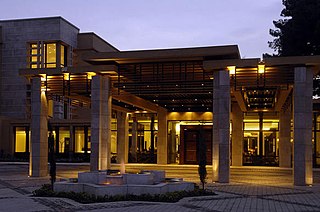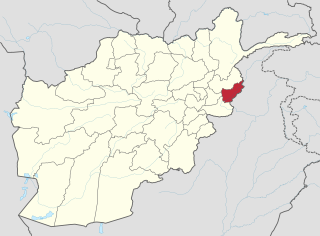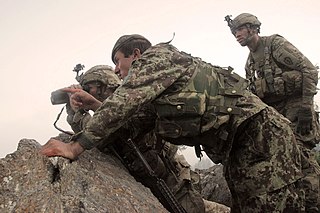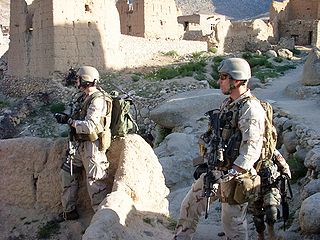 W
WFollowing the terrorist attacks of September 11, 2001, several nations took on Al-Qaeda and the Taliban during Operation Enduring Freedom (OEF) in Afghanistan. OEF was the initial combat operations starting on 7 October 2001, in the wake of the 11 September attacks on the United States, and during 2002 and 2003.
 W
WOn 10 January 2017, multiple bombings in Afghanistan occurred at government and tribal establishments during the renewed War in Afghanistan. The Taliban claimed responsibility for all but one of the attacks, which targeted a United Arab Emirates diplomatic mission. In total, at least 64 to at least 88 people were killed and at least 94 were wounded, with at least three attackers also being killed. Other attacks may have taken place.
 W
WOn 21 April 2017, at least ten Taliban fighters attacked Camp Shaheen, headquarters of the 209 Corps of the Afghan National Army (ANA), near Mazar-i-Sharif, Balkh Province. The death toll was unclear—official Afghan government statements said about 140 people were killed and 160 injured, while media reports said as many as 256 were dead. The attack was the deadliest on an Afghan military base since the beginning of the war.
 W
WIn January 2006, NATO's focus in southern Afghanistan was to form Provincial Reconstruction Teams with the British leading in Helmand Province and the Netherlands, Australia and Canada leading similar deployments in Orūzgān Province and Kandahar Province respectively. The United States, with 2,200 troops, stayed in control of Zabul Province. Local Taliban figures voiced opposition to the incoming force and pledged to resist it.
 W
WUS and NATO International Security Assistance Force (ISAF) operations, alongside Afghan National Army forces, continued against the Taliban through 2007.
 W
WThe following addresses the events in Northern Afghanistan between April 2009 and 2014. While this part of the country had long been relatively peaceful compared to the all-out war zones of the south and east, tensions would flare up again in 2008 when the German soldiers deployed to the area came under attack more often, leading to the deaths of the several soldiers. Previously hindered by national caveats, the deteroriating security situation prompted the German-led Regional Command North to launch a series of operations to take on the rising insurgency. Concerted operations began after an insurgent attack on PRT Kunduz within minutes of German Chancellor Angela Merkel's departure from a visit. Within two years, the German presence would be doubled and additional reinforcements from the American ISAF contingent were called in, including heavy German armoured vehicles and US aviation assets, allowing for a more aggressive approach towards the insurgency.
 W
WOperation Toral was the codename for the British presence within Afghanistan post-2014 as part of NATO's Resolute Support Mission. UK forces had two major tasks: training and mentoring Afghan Forces, and providing force protection for NATO advisors via the Kabul Security Force/Kabul Protection Unit.
 W
WOperation Jacana is the codename for a series of operations carried out by coalition forces in Afghanistan. The operations were carried out most notably by 45 Commando Royal Marines. U.S. forces, Australian SAS and Norwegian FSK also participated. The operation was a follow-up operation of Operation Anaconda and was meant to kill or capture the remaining Al-Qaida and Taliban rebels. The operation has been called a "mopping up" operation after Operation Anaconda. The operation is named after an African bird type, jacana, described in one manual as "shy, retiring, easily overlooked".
 W
WThe Janikhel offensive was launched by the Taliban and the Haqqani network in early August 2016 to conquer the Janikhel District within the contested Paktia Province from government forces. Due to the district's geographic location, it is of great strategic and tactical value to any force that controls it. After being besieged by insurgents for weeks and not receiving any outside help, the local government forces retreated from the district on 27 August. Even though the district was retaken by the government on 5 September, the fact that the district had been captured by the Taliban in the first place was widely considered a heavy blow for the government, which faced increasing insecurity and loss of territory since the ISAF retreat in 2014.
 W
WOn 23 July 2016 a twin bombing occurred in the vicinity of Deh Mazang square in Kabul, capital of Afghanistan, when the #Enlightenment_Movement protesters, mostly from the Hazara ethnic minority, were marching against a decision to bypass their region in the development of the TUTAP mega power project. At least 97 people were killed and 260 injured. The terrorist group Islamic State of Iraq and the Levant has claimed responsibility, however, the same group later on refused it. Some Hazara protestors allege that Afghan president Ashraf Ghani was behind the attack. They believe that Ashraf Ghani government was abetting the terrorists who were responsible for the attack. They also allege that the government officials were preventing the wounded from being shifted to the hospital.
 W
WOn 31 May 2017, a truck bomb exploded in a crowded intersection in Kabul, Afghanistan, near the German embassy at about 08:25 local time during rush hour, killing over 150 and injuring 413, mostly civilians, and damaging several buildings in the embassy. The attack was the deadliest terror attack to take place in Kabul. The diplomatic quarter—in which the attack took place—is one of the most heavily fortified areas in the city, with 3-meter-tall (10 ft) blast walls, and access requires passing through several checkpoints. The explosion created a crater about 4.5 m (15 ft) wide and 3–4 m (10–13 ft) deep. Afghanistan's intelligence agency NDS claimed that the blast was planned by the Haqqani Network. Although no group has claimed responsibility, the Afghan Taliban are also a suspect but they have denied involvement and condemned the attack.
 W
WThe 2014 Kabul Serena Hotel attack was a mass shooting that took place in the restaurant of the Kabul Serena Hotel, in Kabul, Afghanistan on 20 March 2014 carried out by Taliban militants. The shooting, which took place in a hotel that is popular with foreigners and wealthy Afghans, killed nine civilians, including four foreigners. The attack was a shock to many as it took place in a heavily fortified area of Kabul.
 W
WThe 2008 Kabul Serena Hotel attack was an attack on the gym of the Kabul Serena Hotel, in Kabul, Afghanistan on January 14, 2008, for which the Taliban claimed responsibility.
 W
W2014 Kunar Offensive refers to a 2014 armed conflict of the ongoing War in Afghanistan, between the Afghan Army and a terrorist group, Tehrik-i-Taliban Pakistan (TTP). It occurred in the Dangam district of eastern Kunar province, in Afghanistan bordering on Pakistan.
 W
WThe Australian contribution to the war in Afghanistan has been known as Operation Slipper (2001–2014) and Operation Highroad (2015-2021).
 W
WNATO logistics in the Afghan War refers to the efforts of the North Atlantic Treaty Organization to deliver vital fuel, food, hardware and other logistic supplies to Afghanistan in support of the War in Afghanistan (2001–2021). Logistics operations took place under the auspices of the International Security Assistance Force from 2001 to 2014, then under the Resolute Support Mission from 2015 until 2021.
 W
WOperation Champion Sword was a joint military operation by the forces of the United States and Afghanistan as part of an International Security Assistance Force against the Taliban and allies. Lasting for a week, the operation resulted in the capture of 14 militants and homemade bomb-makers, as well as improving the general security of Khost Province. The operation targeted safe havens and terrorist hideouts in the Sabari and Tere Zayi districts of Khost province.
 W
WOperation Commando Fury was a four-day Afghan military operation against the Taliban in the Kapisa Province. Six insurgents were killed and six others were captured.
 W
WOperation Hammer Down was a seven-day U.S.-led air-assault offensive in June 2011 designed to eliminate foreign fighters and training camps in the Watapur Valley of Kunar Province in Afghanistan in preparation of an eventual push into the Western Pech area. The operation's primary objective was to destroy suspected training camps at the northern end of the Watapur in order to interdict the flow of insurgents through the valley and forbid the Taliban from increasing their manpower in the western Pech. This operation was conducted by the 2nd Battalion 35th Infantry, 3rd Brigade Combat Team, 25th Infantry Division as a battalion-wide mission that spread each element throughout the area of operations
 W
WOperation Omari, also called the Spring Offensive, was an offensive launched by the Taliban against the Afghan government in Afghanistan. Its start was announced on 12 April 2016. The Taliban made their yearly spring offensive announcement on April 12, 2016. They named the offensive in honor of the movement's late leader. The announcement of Operation Omari includes details on how the members of the group should present themselves in public. The aim of the Operation is considered ambitious and its focus is on clearing the remaining areas from enemy control and presence. Unlike offensive announcements from previous years this announcement contained details about specific targets that would be attacked during the operation. The targets were stated in general terms with reference only to "large scale attacks on enemy positions across the country, martyrdom-seeking and tactical attacks against enemy strongholds, and assassination of enemy commanders in urban centers."
 W
WOperation Rock Avalanche was a six-day, US-led offensive from 19 to 25 October 2007, with the purpose of hunting Taliban fighters in the Korengal Valley of Afghanistan. The mission also aimed to establish a peace with the local populace so that a road could be safely built through the area by the Afghan government. Over the course of the operation, a series of running battles occurred with members of the Taliban, as well as with local tribesmen. U.S. Army Paratrooper Salvatore Giunta would be awarded the Medal of Honor for his actions during combat between U.S. forces and local Afghans.
 W
WThe siege of Sangin was a military engagement which occurred between June 2006 and April 2007, between Taliban insurgents and the British Army. In the engagement the district centre of Sangin District in Helmand Province, Afghanistan, was occupied by the British forces and was completely surrounded by the Taliban fighters. At one point fighting became intensive, causing General David J. Richards, the NATO commander in Afghanistan, to declare that Helmand province had seen the fiercest fighting involving British troops since the Korean War. It became emblematic of the difficulty of the mission being carried out by British soldiers in Afghanistan, who nicknamed it "Sangingrad".
 W
WThe Battle of Shok Valley, also known as Operation Commando Wrath, was a joint U.S.-Afghan raid designed to kill or capture Gulbuddin Hekmatyar, the leader of Hezb-e-Islami Gulbuddin (HIG) in the Shok Valley of Nuristan Province of Afghanistan on 6 April 2008. Ten Special Forces soldiers and their combat cameraman were awarded the Silver Star for bravery, the greatest number of such awards for a single battle since the Vietnam War. In 2018, Special Forces medic Ronald J. Shurer's Silver Star was upgraded to the Medal of Honor for his actions during the battle. In 2019, Special Forces weapons sergeant Matthew O. Williams's Silver Star was upgraded to the Medal of Honor for his actions during the battle. In addition SrA Zachary Rhyner, ODA 3336's attached Air Force Combat Controller, was awarded the Air Force Cross.
 W
WOperation Tar Heels was a military operation launched by US Marines in Laghman Province, eastern Afghanistan. Patrols of around 30 men were ambushed in several places, but the Taliban attackers were driven back. The Marines lost team leader Nicholas Kirven in the meantime. Otherwise, the operation to patrol Laghman Province was a success.